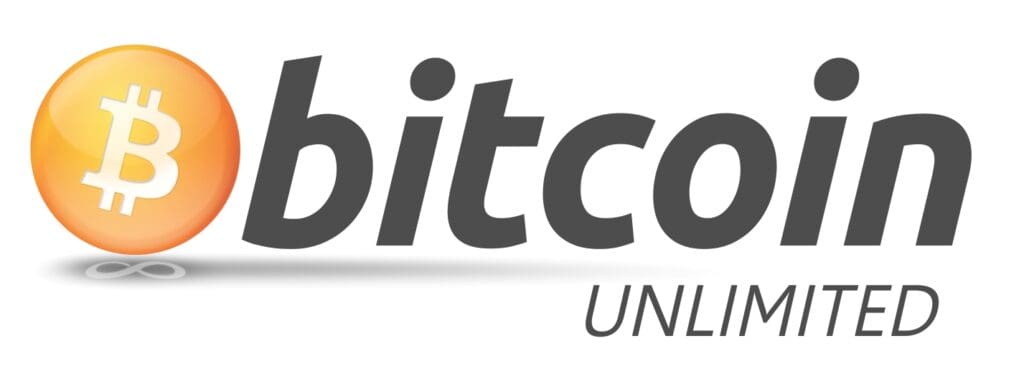Bitcoin Unlimited, a pivotal cryptocurrency proposal, emerged from the community’s growing concerns regarding sluggish transaction speeds and escalating fees. This innovative concept aimed to enhance the Bitcoin network’s transaction processing capabilities and reduce fees by increasing the block size limit. While the actual fork never materialized, it sparked discussions and developments that eventually led to significant forks in the cryptocurrency space.
Bitcoin Unlimited’s Evolution and Its Association with eCash
The Bitcoin Unlimited project eventually aligned itself with the Bitcoin Cash (BCH) initiative, crafting a dedicated client for BCH. Notably, Bitcoin Cash transformed in 2018 when it rebranded as Bitcoin ABC, signifying an “Adjustable Block-size Cap.” This metamorphosis continued in May 2021 when it adopted eCash (XEC). Consequently, as of 2022, Bitcoin Unlimited is a client that actively supports eCash (XEC) transactions.
Key Takeaways
- Bitcoin Unlimited aimed to optimize transaction speed and scalability by proposing increased block size.
- The project envisioned miners increasing network capacity by accommodating larger block sizes.
- Bitcoin Unlimited has evolved into a client for Bitcoin ABC, facilitating transactions in the cryptocurrency eCash.
Exploring the Essence of Bitcoin Unlimited
Bitcoin Unlimited arose as a response to the challenges plaguing the blockchain. Unlike traditional centralized systems, the Bitcoin network records transactions on a decentralized ledger spread across thousands of computers. This distributed ledger can be independently verified by anyone interested.
A consensus mechanism, operated by miners, validates transactions within the network. These miners maintain the integrity of the blockchain. New blocks were created every ten minutes on the Bitcoin blockchain at that juncture, perpetuating a delay.
Though the Bitcoin blockchain still requires approximately ten minutes to produce a new block, auxiliary solutions have been devised on other layers to expedite the process and reduce transaction costs. Nevertheless, this decentralized system inherently processes fewer transactions than its centralized counterparts. As Bitcoin transactions surged in popularity, the network neared its capacity, resulting in prolonged transaction times and escalating fees. Bitcoin Unlimited surfaced as one of the proposals to alleviate network congestion by increasing the transaction capacity of Bitcoin.

Historical Insights
In 2015, Peter Rizun proposed on the Bitcoin Forum to alter the block size and introduce Bitcoin Unlimited as a potential fork. Encouraged by the discussions and support it garnered, Rizun continued to develop and promote Bitcoin Unlimited. Despite gaining some community support, Bitcoin Unlimited failed to gain widespread adoption.
The block size debate eventually led to a significant schism in the Bitcoin network in August 2017. Most miners and users remained loyal to the original network, preserving the 1 MB block size limit. Subsequently, a new cryptocurrency, Bitcoin Cash, emerged due to users and miners adopting software allowing larger blocks.
For a fork to succeed, community adoption is essential. In the case of Bitcoin Unlimited, miners opted not to implement the proposed code on their machines, opting to remain with the original Bitcoin blockchain. This exemplifies how the community shapes blockchain development.
Rather than fading into obscurity like many failed forks, Bitcoin Unlimited took a different path. When Bitcoin Cash (BCH) materialized, the Bitcoin Unlimited team supported it by developing a client for the network.
Bitcoin Cash underwent its own transformations, transitioning into Bitcoin Cash ABC in 2018 and later rebranding as eCash (XEC) in May 2021. Consequently, Bitcoin Unlimited is now a client designed to facilitate eCash (XEC) transactions.
Distinguishing Bitcoin Unlimited’s Approach
The Bitcoin network blocks permanently record transactions, functioning like ledger pages or record books. Each completed block paves the way for the next in the blockchain. Traditionally, Bitcoin imposes a limit of one megabyte of transaction data in each block, generated every ten minutes.
Bitcoin Unlimited proposed increasing block sizes, relying on miners—individuals and entities contributing computing power—to step up and bolster the network’s capacity.
Bitcoin Unlimited remains an actively developed project. However, rather than being a standalone blockchain, cryptocurrency, or payment system, it functions as an “implementation of the Bitcoin client software,” exclusively supporting Bitcoin ABC and eCash transactions.